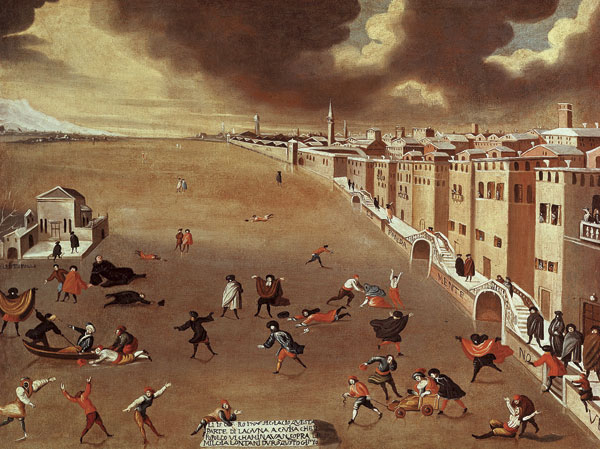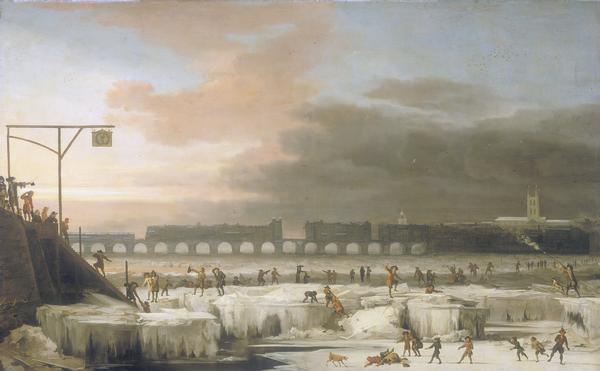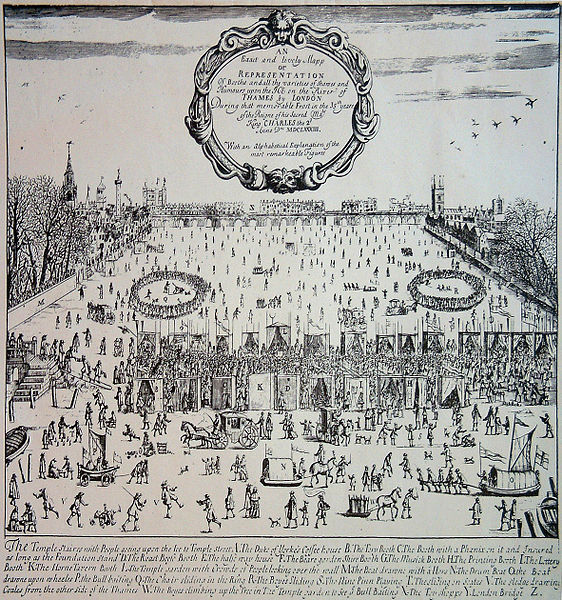A painting of Venetians frolicking and lollygagging on the city's icy lagoon, frozen over by the harsh winter of 1709. Members of the city's gondoliering guilds still recall despairingly that horribly unprofitable fiscal year.
The Frozen Thames, 1677.
The great London waterway "The River Tims" froze over several times during the seventeenth and eighteenth centuries. It has not frozen since 1814, however, perhaps because of some Napoleonic plot to sabotage the popular winter carnivals held on the ice-covered river and demoralize the British public.
A depiction of one of the infamous "Frost Fairs" held on the Thames from 1608 to 1814. Although drunken revelry and frivolous celebration ruled the day, many lost body parts from frostbite and suffered death-by-hypothermia (not to mention the aggravation it caused gout-sufferers).
Part of fear-inducing modernist Virginia Woolf's 1928 novel Orlando is set against the backdrop of The Great Frost. Woolf would appreciate the warmer winters of post-Little Ice Age Britain during her 1941 "Ophelian swim."
Several stories about the extreme cold that winter have survived. It was said that trees exploded because of the low temperatures! Loaves of bread froze so thoroughly that it took an ax to cut it! People reported that their nightcaps (standard-issue attire in the eighteenth century) froze to their headboards overnight! Livestock froze to death in their barns and coops (which makes one wonder why all those French people starved to death with all that meat around)! King Louis XIV became mildly uncomfortable for several hours at Versailles on the 18th of January!
Fun in the snow! (I think that might be an exploded tree at lower-center.)
I hope this tale of winter long ago indeed has warmed the cockles of your heart. Now, brave the frosty air of your northern climes, and be glad nightcaps and unsliced bread are now passé!





.jpg/800px-Kindermord_(Pieter_Brueghel_d._J.).jpg)
fear-inducing modernist? explain!
ReplyDeleteWho's afraid of Virginia Woolf?
DeleteThank you, Anonymous, for clearing up this murky matter!
Delete